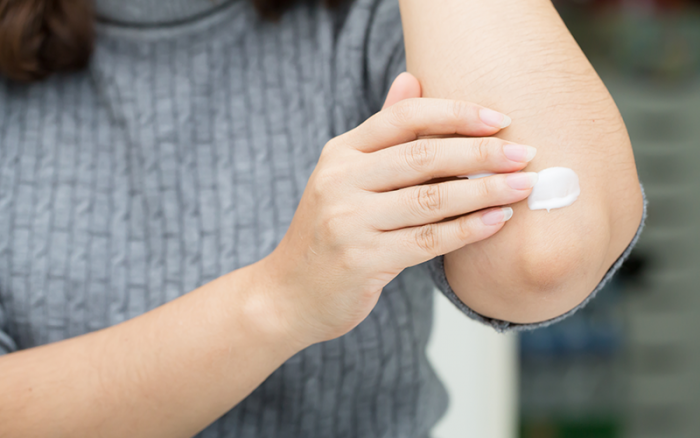The way you care for your skin after Mohs surgery can have a significant impact on how well you heal. Since you have already had at least one incidence of skin cancer, you may be vulnerable to develop more skin cancers in the future. In addition to scheduling regular skin exams, you will want to make sure that you’re following all the necessary preventive measures to protect your skin from further damage.
Sunscreen plays a significant role in skin protection. Even before being diagnosed or showing signs of skin cancer, you probably heard the recommendations over and over to wear sunscreen if you’re going to spend time outdoors — even if it’s cloudy. But now that you’ve had surgery, the recommendations are urgent warnings. If you want to protect your skin, you simply must wear sunscreen.
How Soon Should You Start Wearing Sunscreen After Surgery?
As much as you need to use sunscreen, it’s important to let the site of your incision heal fully before applying sunscreen directly on it. Keep it covered with a bandage and make sure that you apply sunscreen on any other exposed skin, including your face, neck, back of hands, arms and legs.
“Anyone who has had Mohs surgery should wear sunscreen every day,” says Dr. Leon Chen, a board-certified dermatologist and fellowship-trained Mohs surgeon at U.S. Dermatology Partners Houston Medical District. “It doesn’t matter if you’re going to be outside for a few hours or just a few minutes. Even if you’re just walking outside to get your morning paper, applying sunscreen first is one of the most important things you can do to protect your skin.”
Since the incision site is covered after the surgery, you won’t have to be concerned about using sunscreen on the affected area right away. But you should already be looking at what type of sunscreen is right for you.
“Once all the stitches have been removed and the wound is closed, you should start using sunscreen,” Dr. Chen adds. “That will usually be about one week after the surgery.”
The good news is that applying sunscreen to the affected area will have an additional therapeutic benefit: Scars and surgical wounds will sometimes become darker when exposed to sunlight, and using sunscreen over the wound as it’s healing can help minimize this effect.
Finding the Right Sunscreen After Skin Cancer
Today, there are hundreds of sunscreen products to choose from; they come in a wide range of SPF and are available as creams, lotions, and sprays. Knowing what to look for is the first step in narrowing down your choices, and that likely is going to require some homework on your end.
“There are a lot of different kinds of sunscreen on the market today, but they are not all created equal,” Dr. Marchell says. “You want to look for sunscreens that don’t have harmful chemicals that could potentially cause further damage to your skin.”
The Best Sunscreens to Use After Mohs Surgery
Dr. Chen advises looking for mineral-based sunscreens that use ingredients like zinc or titanium dioxide. Mineral sunscreens contain inorganic ultraviolet (UV) filters that offer broad-spectrum UV coverage. On the other hand, chemical sunscreens absorb UV. Chemical sunscreens can cause photo-allergic contact dermatitis and recent studies showed active ingredients in chemical sunscreen were found in the blood with plasma concentration surpassing the safety threshold set by the US Food and Drug Administration. The actual health implications from this finding remain unknown.
“Today, there are many options for mineral sunscreens which provide broad-spectrum UV coverage without the potential to cause photo-allergic contact dermatitis and have a better overall safety profile,” he explains. “This is important for anyone who is using sunscreen to be aware of, but it’s particularly important for those who have already had skin cancer and are more vulnerable to having more.”
Looking to Visit a Dermatologist?
Want to learn more about how to protect your skin from skin cancer? Contact U.S. Dermatology Partners today to make an appointment with one of our board-certified dermatologists. We have multiple locations throughout the country, so fill out our simple online form to get in touch with us. One of our local team members will reach out to you shortly to answer your questions or schedule an appointment for you to visit us soon.
Find a location near me
or


